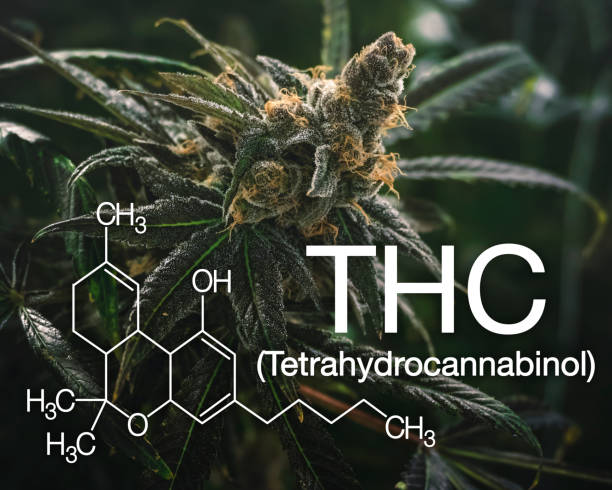- A hallucinogenic compound found in the marijuana plant is delta-9 tetrahydrocannabinol, also known as delta-9 THC.
- The cannabis plant contains natural more than 100 compounds, including delta-9 THC.
- Cannabis plants are often used to produce concentrated levels of delta-9 THC, which can be found in candies, chocolates, tinctures, flowers, and concentrates, among other products.
- There are more than 100 distinct cannabinoids in marijuana plants. Each one affects the body in a unique way. Marijuana’ cannabinoids function by attaching to particular locations on the nerves and in the brain. Cannabis contains more than a hundred cannabinoids.
- Cannabidiol (CBD) and delta-9-tetrahydrocannabinol are the two main chemicals utilised in medicine (THC). The “high” that comes from ingesting or smoking marijuana is also caused by THC.
How does THC make me feel “high”?
Numerous distinct compounds known as cannabinoids make up cannabis. THC, which is present in both marijuana flowers and edibles, is the most prevalent cannabinoid in the plant. THC is a cannabinoid that makes you feel high. It is a psychoactive chemical that attaches to brain receptors that can react to it.
When you ingest or continue smoking, THC enters your bloodstream through your lungs or digestive tract. Once inside your brain, the chemical binds with these receptors and starts a chain of events that give you a high. Eating edibles can take longer than consuming flowers because THC’s effects are based on how much you absorb and how rapidly it affects your brain.
What are the main symptoms of feeling “high”?
The main symptoms of feeling “high” are:
- Relaxed or even sleepy.
- Euphoria, happiness, and well-being.
- Sense of being detached from reality.
- Increased mental clarity and problem-solving abilities.
- Anxiety, paranoia, and panic attacks can also occur during the “high” stage of cannabis intoxication.
Does using Sativa cannabis with THC boost my intelligence?
The effects of THC on the body and the impacts of marijuana on the brain must both be taken into account if you want to increase your IQ. Some people’s cognitive performance may be aided by THC, according to evidence.
Although marijuana has many advantages, it’s vital to understand that not everyone who consumes it will experience an improvement in intelligence. As a result of daily cannabis use for more than three years, research have shown that some people’s IQs may decline. Researching your current mental state and potential changes in it is the best approach to decide whether you should take cannabis to increase your IQ. The results you find could surprise you!
When using cannabis, what is a high amount of THC?
A high dose of THC is any dose that causes the user to feel “high.” A high amount of THC is sometimes called a “dab” or “dabbing.” It’s important to note that a high dose of THC isn’t always a good thing. It can be dangerous if you’re using it in a way that is not recommended. For example, using it with other drugs or alcohol can be harmful. Also, some people have more sensitive digestive systems than others and might not be able to handle a hefty dose of THC.
Is THC addictive?
THC is addicting, yes. Marijuana has quick, powerful effects that frequently leave users with a strong need to resume regular use. As a result, it could result in unfavourable usage habits. THC has a variety of impacts on the brain, neurological system, and body, including altered mood and perception, alterations in coordination, memory loss, and pain perception.
Marijuana is not physically addictive in the same way that other drugs, such as heroin or nicotine, are. But it does have a powerful psychological addiction component that can mimic the symptoms of other addictions.
Can I use THC to treat medical symptoms?
Yes, you can use THC to treat medical symptoms.
Using marijuana for medical purposes is a great method to help your body recover from a variety of illnesses and health issues. Medicinal cannabis is most frequently used to alleviate chronic pain and nausea brought on by chemotherapy, as well as other illnesses like HIV/AIDS, cancer, glaucoma, multiple sclerosis (MS), epilepsy, and more.
Many people use medical marijuana to enhance their general health in addition to using conventional therapy to treat the signs of sickness.

